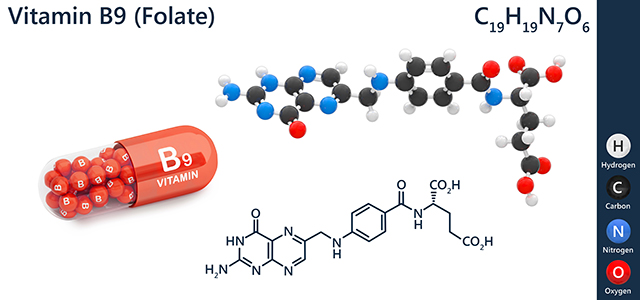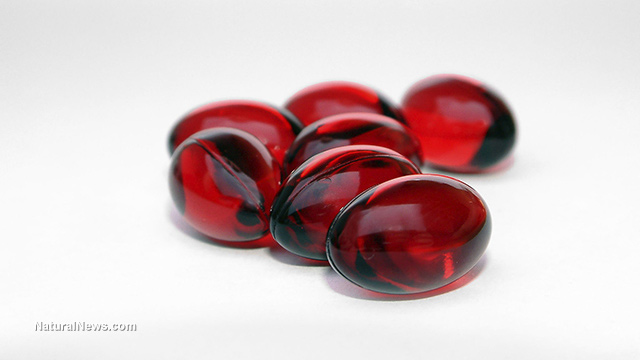Synthetic vs natural: Folate is beneficial and essential to health, but too much of the wrong kind can be bad
02/08/2019 / By Jhoanna Robinson

With many vitamins out on the market, being properly informed is the best way to make sure you’re getting what your body needs, and not just a knockoff version that’s made to copy the original. One curious case for this premise is vitamin B9. Many people know it by its two more common names — folate and folic acid. However, there is a great difference between the two, and understanding it will ensure that you get the vitamin that’s right for you.
Folate is a naturally-occurring vitamin which plays a key role in carbon metabolic reactions. These reactions are part of the synthesis of amino acids and cell proliferation, as well as the synthesis, repair, and methylation of our body’s DNA.
Natural folate is found in legumes such as chickpeas and lentils; dairy products; dark green vegetables such as asparagus, Brussels sprouts, lettuce, and spinach; fruits such as oranges and avocados; and seafood.
While there are varying sub-category forms of natural folate within these foods, on the whole, these forms share the same “architecture.” Much like a patchwork quilt, the various forms of folate are slightly different, with each square not being entirely the same as the other – however, when combined, form a general or singular pattern or motif.
Folic acid, on the other hand, is the synthetic form of folate. This is found in supplements and fortified foods which normally do not contain the specific nutrient, but through the powers of manufacturing are now imbued with it.
To compare the differences between the two, we can look at how both folate and folic acid are converted to its metabolically active form, 5-methyltetrahydrofolate (5-MTHF). Unlike folate, the majority of folic acid is not converted to 5-MTHF in the digestive system; rather, it needs to be converted within the confines of the liver or other tissues.
However, the process by which folic acid is converted to 5-MTHF is slow. Even small doses, such as 200 to 400 micrograms per day, may not be completely metabolized. This problem gets even more complicated when fortified foods are ingested along with folic acid supplements. This leads to unmetabolized folic acid accumulating in the bloodstream and causing several health problems.
Moreover, the link between too much folic acid intake and folate-sensitive cancers (such as colorectal cancer) has sparked concerns regarding the necessity to avoid these risks. Too much folic acid intake can also cause vitamin B12 (cobalamin) deficiency, which raises the risk of dementia and damaged nerve function. (Related: Folate helps fight colorectal cancer.)
Studies have also added weight to increasing evidence that correlates folate deficiency with depression. This link can be pointed out to folate being metabolized into S-adenosylmethionine (SAMe). Both contribute to the production of dopamine, norepinephrine, and serotonin, which are all neurotransmitters that, when we are deficient in them, are believed to have a hand in causing depression.
Another factor to consider regarding nutritional deficiencies is alcohol use disorder (AUD) — as this is a common incidence that exacerbates the problem. Folate deficiency for people with AUD is not only because of a poor diet, but also because of conditions that heighten nutritional requirements like impaired hepatic uptake, increased renal excretion, and malabsorptive conditions.
Why do we need folate?
Folate is known to improve our health in a variety of ways. Here are some of its benefits:
- Folate is necessary for the decrease in fatigue and tiredness.
- Folate contributes to proper psychological function.
- Folate is responsible for healthy blood flow and the avoidance of folate-deficiency sickness, anemia.
- Folate is needed for healthy cell division, which is why it is a requirement in early pregnancy and infancy, as well as a child’s early developmental stages.
- Folate is needed for a healthy immune system – folate deficiency may affect white cell division.
For more stories that reveal the significance of nutrients to everyday life, visit Nutrients.news.
Sources include:
Tagged Under: brain health, Colorectal Cancer, depression, folate, folic acid, metabolic reactions, natural vs synthetic, Neurotransmitters, nutrients, nutritional deficiencies, supplements, vitamin B9



















